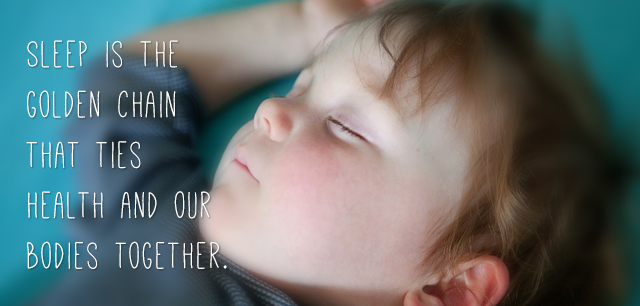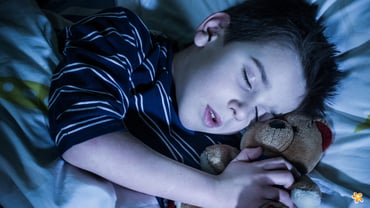All children have days when their behavior makes you wonder if they got up on the wrong side of the bed. There are a variety of reasons for kids’ behavior challenges, but we often overlook one possible cause: sleep disturbances. Maybe it’s not about which side of the bed your child gets up on, but how well he sleeps while he’s there. Not getting enough sleep can make your child feel cranky, restless, and unfocused, and those feelings can make your child act out, especially if he has a hard time verbally expressing how he feels. If your child is having behavioral challenges, think about taking a look at his sleeping habits. With a little time and patience, you just might get your little ray of sunshine back.
- Keep a sleep journal for your child. Write down when he goes to bed, how often he wakes in the night, and when he gets up for the day. Note when he has nightmares or night terrors. Keep track of what he’s eating as well, and note what kind of day it was: relaxed? Busy? Did you have company? Was he sick? Looking over these notes can help determine which factors might be affecting your child’s sleep.
- Look for signs. Is he rubbing his eyes a lot? Having a hard time getting going in the morning when he wakes? Dozing off during the day? Having more tantrums than usual? All of these are signs that your child might not be getting enough sleep.
- Make her bedroom an ideal place for sleep. If she’s afraid of the dark, install a soft night light, but keep the room as dark as you can. Eliminate noise and light from electronics like TV. Make sure she’s warm enough, but not too warm, and let her sleep with a favorite stuffed animal for comfort.
- Stick to a routine. Try to get your child in bed at the same time every night, and start the winding-down well in advance of bedtime. Give him a relaxing bath, dress him in cozy pajamas, and keep activities calm and quiet before bed. Read a story before you tuck him in to bed, and remind him that it’s time to sleep and you’ll see him in the morning.
- Talk to your doctor if sleep problems persist. There may be a physiological reason for the lack of sleep, and she may be able to recommend other strategies to help your child stay rested.
Behavior Problems: Is Your Child Getting Enough Sleep?
-April Fox, Staff Writer
Carolina Pediatric Therapy © January 2014



